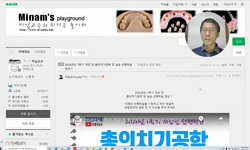Guangzhou's Yuanjing Road, a prominent Korean community in China, has developed a unique linguistic ecology and representation through the interaction of diverse languages. This study utilises both qualitative and quantitative research methods to inve...
http://chineseinput.net/에서 pinyin(병음)방식으로 중국어를 변환할 수 있습니다.
변환된 중국어를 복사하여 사용하시면 됩니다.
- 中文 을 입력하시려면 zhongwen을 입력하시고 space를누르시면됩니다.
- 北京 을 입력하시려면 beijing을 입력하시고 space를 누르시면 됩니다.
https://www.riss.kr/link?id=A109590920
-
저자
Weiwei, Zhang (Sun Yat-sen University) ; Keyan, Tong (Sun Yat-sen University)
- 발행기관
- 학술지명
- 권호사항
-
발행연도
2025
-
작성언어
English
-
주제어
Linguistic landscape ; Korean street ; Korean community ; Yuanjing Road ; COVID-19 ; 언어경관 ; 한국 거리 ; 한인 커뮤니티 ; 위안징 거리 ; 코로나19
-
등재정보
KCI등재
-
자료형태
학술저널
-
수록면
469-495(27쪽)
- DOI식별코드
- 제공처
-
0
상세조회 -
0
다운로드
부가정보
다국어 초록 (Multilingual Abstract)
Guangzhou's Yuanjing Road, a prominent Korean community in China, has developed a unique linguistic ecology and representation through the interaction of diverse languages. This study utilises both qualitative and quantitative research methods to investigate the linguistic landscape. This study aims to identify the characteristics of the linguistic landscape of Yuanjing Road, trace its development from formation to decline, and analyse the social factors driving these changes. Concurrently, this study examines the different functions of language on signage and its development in the post-pandemic context. The results reveal that after the pandemic, the linguistic landscape of Yuanjing Road remains predominantly Chinese, but there is a rising trend in the use of Korean signs. The non-Korean economic zone of Yuanjing Road has expanded, shifting the primary consumer base from Korean to Chinese, and the identity of business owners has also undergone a great change. The results demonstrate that Yuanjing Road, a main Korean center in Guangzhou, the Korean linguistic landscape transcends its original roles of information dissemination and identity representation. It now serves as a symbol of Korean culture, providing a cultural experience for visitors and fostering a stable commercial space that supports the harmonious coexistence of multiple languages in the community.
동일학술지(권/호) 다른 논문
-
성폭력 담화의 명명 전략 연구 - 안희정 사건의 언론 보도와 온라인 댓글을 중심으로 -
- 연세대학교 언어정보연구원
- 유희재
- 2025
- KCI등재
-
한국어 자원 구축 정책 연구 - 언어모델의 한국어 성능 향상을 위한 자원 중심으로 -
- 연세대학교 언어정보연구원
- 위진
- 2025
- KCI등재
-
환언 관계의 어휘요소간 경쟁에 대한 고찰 - 대규모 신문 말뭉치를 중심으로 -
- 연세대학교 언어정보연구원
- 임근석
- 2025
- KCI등재
-
한국어 발음 연습을 위한 음향 모델 학습용 음성 데이터의 수준 검토
- 연세대학교 언어정보연구원
- 심현주
- 2025
- KCI등재





 KCI
KCI KISS
KISS






